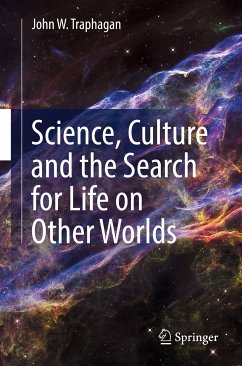The rapid growth in our awareness of other worlds makes this a crucial moment to think about and assess the influence of cultural values on the scientific search for extraterrestrial life. Here the author considers the junction of science and culture with a focus on two main themes: (1) the underlying assumptions, many ofwhich are tacitly based upon cultural values common in American society, that have shaped the ways researchers in astrobiology and SETI have conceptualized the nature of their endeavor and represented ideas about the potential influence contact might have on human civilization, and (2) the empirical evidence we can access as a way of thinking about the social impact that contact with alien intelligence might have for humanity.
Dieser Download kann aus rechtlichen Gründen nur mit Rechnungsadresse in A, B, BG, CY, CZ, D, DK, EW, E, FIN, F, GR, HR, H, IRL, I, LT, L, LR, M, NL, PL, P, R, S, SLO, SK ausgeliefert werden.









